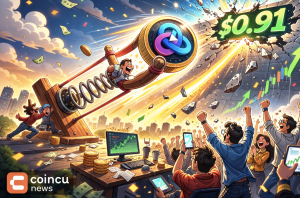A Decentralized Autonomous Organization (DAO) is an innovative concept that has gained popularity with the rise of blockchain technology. These organizations operate in a decentralized manner, utilizing smart contracts on a blockchain to govern their activities. The primary objective of DAOs is to enable a large community of participants to contribute to the decision-making and future development of the organization.
DAOs rely on smart contracts, which are self-executing contracts with the terms of the agreement directly written into code. These smart contracts facilitate the decision-making processes within the organization. The community of stakeholders collectively makes decisions on matters such as resource allocation and funding. In order for a decision to be accepted, consensus among a specific percentage of the community is required. This decentralized consensus is achieved through a distributed blockchain network, with each DAO determining the specific percentage needed for a decision to pass.
While Bitcoin was the first project to introduce the concept of a DAO, it was the emergence of the Ethereum blockchain that propelled the evolution of DAOs towards complete transparency and community governance. Ethereum’s smart contract capabilities provided the necessary infrastructure for the development of DAOs as decentralized platforms.
It is important to understand that DAOs themselves do not engage in product creation or code and hardware development. Instead, they have the ability to hire contractors to perform these services once a hiring contract is approved through community consensus.
Transparency is a fundamental aspect of decentralized autonomous organizations. Shareholders and the DAO community have access to all financial operations conducted by the organization. The smart contract and underlying code of the DAO are also publicly available, ensuring complete transparency. This transparency aligns with the core principles of cryptocurrencies and aims to surpass traditional centralized management by creating a fully transparent organization.
Decentralized applications (DApps) play a significant role within the activities of DAOs. DApps are software products developed using smart contracts, and DAOs serve as decentralized platforms for communal decision-making. While some DApps focus on money management functions, DAOs are specifically designed to facilitate decentralized decision-making.
It is crucial to acknowledge the potential vulnerabilities of DAOs, as they are open-source software. One notable case is “The DAO,” which became a victim of a bug exploit orchestrated by a group of hackers. This exploit resulted in a significant loss of funds for “The DAO” and spurred a community-wide discussion on the security and governance of DAOs.
Despite the challenges and risks associated with DAOs, they represent an innovative approach to organizational governance. They enable individuals to participate directly in decision-making, promoting transparency, and autonomy. As blockchain technology continues to evolve, DAOs are likely to play an increasingly important role in various industries and sectors, transforming the way organizations are structured and governed.














